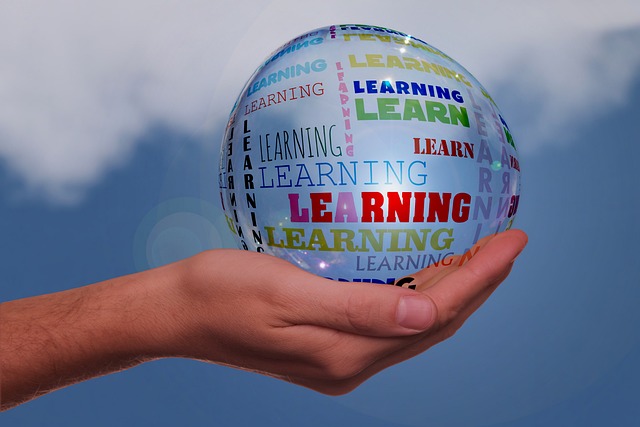Exploring the World Through Study Abroad
Studying in another country is a great way for students to learn new things, meet different people, and see how life works in other places. It helps young learners grow curious about the world and understand new ideas in simple, real-life ways. By trying new foods, hearing new languages, and joining local activities, students can build confidence and discover interests they never knew they had. This guide shares helpful tips about what to expect, how to prepare, and why exploring another country can be a fun and meaningful part of learning.

Studying abroad represents a significant educational and personal development opportunity for students seeking to enrich their academic careers and global understanding. This venture involves moving to a different country to pursue studies, offering a unique blend of cultural immersion, language acquisition, and specialized learning that can profoundly shape an individual’s future trajectory. It provides a firsthand perspective on international affairs, diverse societal structures, and alternative ways of thinking, moving beyond theoretical knowledge gained from textbooks.
What Are Key Study Abroad Learning Tips for Students?
To maximize the benefits of an international study experience, students can adopt several key learning strategies. Actively engaging with the local culture is paramount; this includes trying local cuisine, participating in community events, and making an effort to communicate in the local language, even if English is widely spoken. Academically, it is helpful to understand the host institution’s grading system and academic expectations, which may differ from those in the United States. Time management skills become even more crucial when balancing coursework with exploring a new country. Setting clear academic and personal goals before departure can also provide a framework for a successful experience.
Networking with both local students and other international students can create a supportive community and open doors to new perspectives and friendships. Maintaining an open mind and adaptability are also vital, as unforeseen challenges or cultural differences may arise. These challenges, however, often contribute significantly to personal growth and resilience.
Developing an International Student Study Guide
Creating a comprehensive guide for international students involves several preparatory steps. Before departure, research the host country’s visa requirements, health insurance options, and local laws. Understanding the cost of living, currency exchange rates, and banking options is also essential for financial planning. Academically, students should confirm course equivalencies with their home institution to ensure credits transfer appropriately. Familiarizing oneself with the host university’s resources, such as academic advising, counseling services, and student support groups, can ease the transition.
Packing strategically, considering climate and cultural norms, and arranging initial accommodation are practical aspects that contribute to a smoother arrival. Additionally, learning basic phrases in the local language can greatly enhance daily interactions and demonstrate respect for the host culture. A well-prepared international student guide should encompass these logistical, academic, and cultural considerations to ensure a successful and enriching study abroad period.
Understanding Global Classroom Experiences
Global classroom experiences often differ significantly from those encountered in a student’s home country. Teaching methodologies may vary, with some international universities emphasizing lectures and independent study, while others might prioritize group projects or seminar-style discussions. The content of courses can also reflect a more global perspective, incorporating diverse historical, political, and cultural viewpoints into the curriculum. This exposure broadens a student’s academic understanding and encourages critical thinking about global issues.
Furthermore, studying alongside students from various national backgrounds enriches classroom discussions and provides unique insights into different approaches to problem-solving. This intercultural exchange within an academic setting prepares students for future careers in an increasingly globalized workforce, where collaboration across diverse teams is common. Adapting to these new academic environments is a key part of the study abroad learning process.
The Impact of Educational Travel for Students
Educational travel, a core component of studying abroad, extends learning beyond the traditional classroom walls. Experiencing historical sites, cultural landmarks, and natural wonders firsthand provides a tangible connection to academic subjects, making learning more vivid and memorable. For instance, visiting ancient ruins discussed in a history class or observing unique ecosystems studied in biology offers unparalleled educational depth. This form of travel cultivates a sense of exploration and curiosity, encouraging students to become active participants in their own learning.
Beyond academic enrichment, educational travel fosters personal development. Navigating unfamiliar cities, managing budgets in a foreign currency, and adapting to new social customs build confidence, independence, and problem-solving skills. These experiences contribute to a more well-rounded individual, equipped with a broader understanding of the world and a greater capacity for self-reliance. It is an investment in personal and intellectual growth that yields long-term benefits.
Engaging with different cultures during educational travel also promotes empathy and a deeper appreciation for diversity. Students learn to navigate cultural nuances, challenge their own biases, and develop a more inclusive worldview. This direct exposure to varying perspectives can lead to significant personal transformations, influencing career choices, social interactions, and lifelong interests.
Studying abroad is a transformative journey that combines academic rigor with profound cultural immersion and personal growth. It equips students with a unique set of skills, perspectives, and experiences that are invaluable in both their academic and professional lives. The insights gained from living and learning in a foreign country contribute to a more informed, adaptable, and globally aware individual, prepared to navigate the complexities of an interconnected world.




